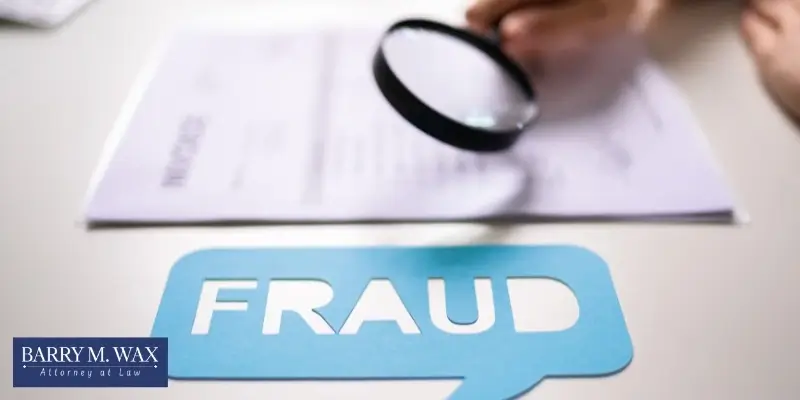Both wire fraud and mail fraud carry severe penalties, including prison time, steep fines, and lasting damage to your reputation. If you’re wondering how to defend against federal mail and wire fraud charges, the answer begins with knowledge and preparation. An experienced federal wire fraud lawyer can also help you understand how to navigate these complex cases.
Federal Mail and Wire Fraud Charges
Before you can fight back, it’s essential to understand what the government must prove in federal mail fraud cases and wire fraud prosecutions.

- Mail fraud: Mail fraud occurs when someone uses the U.S. Postal Service or any private mail carrier to further fraudulent schemes. This can include mailing falsified loan applications, sending fake invoices to trick businesses, and using the mail to deliver fraudulent sweepstakes or lottery notifications. The prosecution must prove there was a scheme to defraud, that there was intent, and that the use of the mail system carried out the scheme.
- Wire fraud: Wire fraud is like mail fraud, but involves electronic communications, such as emails and text messages, phone calls, social media, and financial transactions online. The government uses the same principle of mail fraud with wire fraud, needing to prove the scheme, the intent, and the use of interstate wire communications. Real estate wire fraud is one of the most common, with almost 14,000 people reporting these crimes in 2020.
Both charges may overlap; prosecutors may charge defendants with both mail and wire fraud for the same conduct.
The Seriousness of Wire Fraud and Mail Fraud Penalties
In 2024, consumers reported a loss of $12.5 billion. These numbers are up from years past.
Federal fraud charges aren’t minor offenses. These cases are aggressively prosecuted, and wire fraud penalties and mail fraud penalties can devastate your life. Some penalties can include:
- Lengthy prison sentences
- Hefty fines
- Permanent criminal record
- Loss of professional licenses
- Inability to work in certain industries
- Immigration consequences for non-citizens
With so much at stake, the need for an experienced attorney is extremely important.
Defenses Against Federal Mail and Wire Fraud Charges
Every case is unique, but there are several common defense strategies that a skilled federal wire fraud lawyer may use to challenge the government’s case. There are certain defenses a mail or wire fraud attorney may turn to when creating your defense.
- Lack of intent to defraud: The prosecution must prove you intended to deceive or cheat someone out of money or property. If your actions were a mistake, misunderstanding, or the result of negligence, your lawyer can argue that you lacked criminal intent.
- No fraudulent scheme existed: Not all failed business deals or exaggerated promises are fraud. If there was no deliberate plan to mislead, the prosecution’s case may not stand.
- Insufficient evidence: Federal prosecutors rely heavily on electronic records, emails, phone logs, and witness testimony. A mail or wire fraud lawyer may challenge whether this evidence is admissible and reliable.
- Entrapment: If federal agents pressured you into committing acts you otherwise wouldn’t have done, you may have an entrapment defense.
- Violation of constitutional rights: If investigators violated your Constitutional rights by conducting illegal searches and seizures, your lawyer may be able to suppress evidence.
- Good faith defense: If you genuinely believed your statements or actions were truthful and lawful, even if they turn out to be false, your lawyer may argue that you acted in good faith.
- Mistaken identity or misattribution: In cases involving electronic communications, it’s possible that someone else sent messages, made calls, or conducted transactions under your name.
- Challenging witness credibility: Many federal mail fraud cases rely on cooperating witnesses who may have their own motives for testifying.
Hire a Federal Wire Fraud Lawyer
Barry M. Wax, Attorney at Law, holds decades of experience representing clients in federal mail fraud cases and wire fraud prosecutions. His practice is focused on federal criminal defense. That means he holds the knowledge and skills to take on powerful prosecutors and government agencies.
We understand that every case is unique. We aggressively challenge the government’s evidence, cross-examine witnesses, and fight for the most favorable outcome.

FAQs About How to Defend Against Federal Mail and Wire Fraud Charges
How Do You Beat a Wire Fraud Case?
Beating a wire fraud case requires challenging the prosecution’s evidence of intent, misrepresentation, and use of electronic communications. Wire fraud requires proof that the defendant knowingly participated in a scheme to defraud. Therefore, arguing a lack of intent or that actions were taken in good faith makes for a solid defense strategy. A lawyer may also argue insufficient evidence, mistaken identity, or improper government investigation methods.
Is Mail Fraud Hard to Prove?
Mail fraud can be difficult to prove because prosecutors must establish several elements beyond a reasonable doubt. This includes that the defendant intentionally devised a scheme to defraud, used or intended to use the U.S. mail to carry out the scheme, and that they acted with the specific intent to deceive. Defense attorneys can argue that the mailing was incidental or unrelated to fraud, or that the defendant acted without criminal intent.
What Are the Defenses to Wire Fraud?
Defenses to wire fraud usually focus on intent, evidence, and constitutional rights. A common defense is a lack of intent. Another is good faith or showing that the defendant believed their actions were lawful. Lawyers may challenge the reliability of electronic evidence or argue that communications were unrelated to fraud. The strongest defense ultimately depends on the facts of the case.
Does the Federal Government Have Jurisdiction Over Wire Fraud?
The federal government has jurisdiction over wire fraud. Wire fraud is a federal offense because it involves the use of interstate or international wire communications, such as phone calls, emails, or electronic transfers. If the illegal action crosses state lines or uses federally regulated communication systems, it falls under federal jurisdiction.
Contact a Florida Federal Mail and Wire Fraud Lawyer
The government wastes no time preparing a wire fraud or mail fraud case against you. That’s why you need an advocate who will level the playing field. Hiring an experienced lawyer helps you take the first step toward protecting your freedom and future.
Contact the Law Offices of Barry M. Wax to schedule a consultation.





